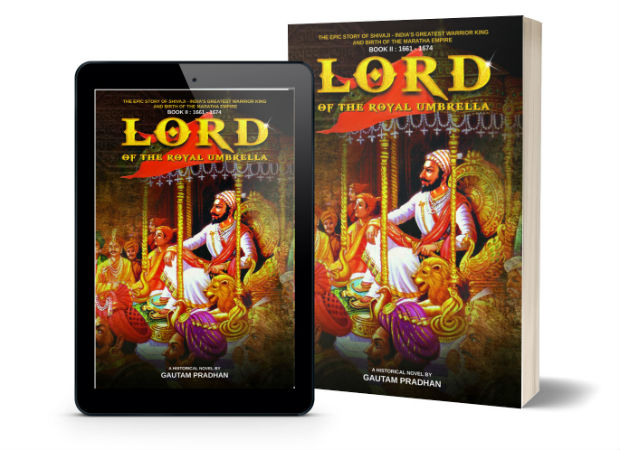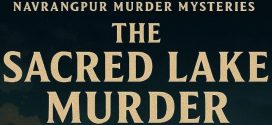While history is considered an account of the things that happened in the past at respective place(s), it is tough to find it unbiased. Historians are also human beings and they have their own perspective too. That’s why it is said that “till the lion learns to write history, the hunter will be represented as a hero”.
You cannot expect court-poets to be unbiased, but, even the historians without any such obligation, paint history as they see it. Mostly, the rulers of the so and so time influence these writings. It is, however, tough to keep the essence of the actual incidents hidden. Of course, the brainwashed people will see it differently than the rational and logical ones.
This Is Here In For You
Listen To The Podcast:
If you love to listen to the book review over reading, or if you want to go through it while doing other activity, here is our Podcast of this review article. Do listen, and share your thoughts with us.
Spotify:
https://open.spotify.com/episode/1QF50js7CRsVXF6Giq63nc
YouTube:
Shivaji Maharaj and Maharana Pratap are considered as the legendary icons of freedom, even before the rise of British and Dutch as foreign rulers in India (that is Bharat).
The good thing is, mature people know that referring them just by name does not mean disrespecting them. As the peole in the land call Lord Ram – Ram lalla. Lord Krishna and Lord Ganesha can be loved in various avatars for example.
Recently, we came across a book named Lord of the Royal Umbrella : Shivaji – II (tagline: Epic Story Of Shivaji Maharaj, India’s Greatest Warrior-King , And Birth Of The Maratha Empire) by author Gautam Pradhan. From our team I got a chance to read this book. This book is published by Platinum Press, an imprint of Leadstart Publishing. We are thankful to the publishers for the review copy. The review is uninfluenced by all means.
| Book Title | : | Lord of the Royal Umbrella : Shivaji – II |
| Author | : | Gautam Pradhan |
| Publisher | : | Leadstart Publishing Pvt Ltd (12 December 2019) |
| # of Pages | : |
477 (Paperback) 1430 KB 396 (Kindle EBook) |
| # of Chapters | : | |
| Purchase Link(s) | : |
Upon doing research we found that the book is the second installment of a trilogy, where the third book is yet to be published. The first book in the series is 300 Brave Men. This book is focused on the incidents that happened between 1661-1664. As I haven’t read the first book in the series, reading Lord of the Royal Umbrella : Shivaji – II, gave me an opportunity to see it as a standalone book.
Let us take a look at the cover page of this book.
Book Cover:
We strongly believe in the saying that “one shouldn’t judge a book merely based on its cover”. The saying is modified a little as we also recognise the influence of a cover page (in either positive or negative way) in book purchase and/or reading decisions.

Lord of the Royal Umbrella : Shivaji – II By Gautam Pradhan | Book Cover
It is natural for us to like something attractive. As you can see, the cover page of this book is quite interesting and attractive. The book ends with the crowning of Shivaji as Chhatrapati – the lord of the Royal Umbrella. The book title also reflects the same. Thus seeing Shivaji Maharaj on the golden throne with an umbrella is the most faithful illustration for the cover page. It uses bright colors and is very detailed. The lion and peacock engraved in the sides of the throne convey very deep meaning. The book title uses the golden yellow color and looks impressive.
Overall, an attractive cover page that remains faithful to the book title.
Book Plot:
Let us take a bird’s eye view of the story explored.
Shivaji has a dream to have complete “swarajya”, from all foreign rulers. Of course, he don’t have the resources that can match against the same of Mughal Emperor – Aurangzeb. He thus came up with a guerilla warfare strategy and started making small dents in the Mughal territories. To stop him from doing so, Aurangzeb sent Shaista Khan, his uncle and a ferocious warrior to capture Pune, the heart of the Maratha land. Capturing fort Chakan was the first task he needed to do.
The book starts with this capture of Lal Mahal and other areas by Shaista Khan. Over the course, the story explores various battles, both physical and emotional. How Shivaji kept capturing various areas of Maharashtra and Konkan region comes next. Also, Shivaji’s relations with the Adilshahi in Deccan are explored as required.
Why Shivaji need to surrender to Aurangzeb when battling against his commandant Mirza Raja Jai Singh is also explored in detail. From Shivaji’s capture in Delhi to his escape from there is also talked at length. Various other battles like Tanhaji’s famous re-capture of Kondhana, Shivaji’s strike at Lal Mahal. Shivaji and his troops looting the Mughal economic center and port – Surat, twice; are some of the key incidents.
The book ends with Shivaji’s crowning as Chhatrapati, so Swarajya get recognition as an official kingdom, having its own currency and official language, concludes the book.
Views And Reviews:
The first thing first. The book is a Historical fiction. Actually most of the writing about historical stuff, no matter how well researched, based on the authenticity of the sources can have some part of “fiction” in them. And when you retell or reimagine history, you need to fill in the visible gaps in the stuff found during research work. A writer uses his imagination in doing so by creating fictional characters and incidents, based on the possible way the things could have happened, based on his/her thought-process and imagination. The author himself makes it clear in the beginning of the book:
… But my book is not historical biography, I have had the unique opportunity to explore and at least try to understand what Shivaji the person went through during this very difficult period. Undoubtedly, my portrayal of events and emotions come from my own mind, but they attempt to give the reader a glimpse into what could have been Shivaji’s own thoughts.
The author has done extensive research. The bibliography at the end and references to various incidents show that he didn’t take “historical fiction” genre rightly and justified “historical” part also faithfully. Reading this book reminded me of the following books about Maratha warriors by Ram Sivasankaran.
It is obvious to be biased based on one’s inclinations. The author, however, tried to be as neutral as possible. You can see the exploration of the shortcomings during war plannings and even loses faced by the protagonist’s army. No doubt, one will admire a freedom-fighter, that too of the stature of someone like Shivaji Maharaj and thus wonder about his qualities, as the author says through a character:
… The Marathas too, would have lost scores of their own. Yet they refused to stand down and surrender. How could one man ignite such passion and devotion in his people?
The answer is obvious. It is about Shivaji think of his soldiers and other confidantes.
If my men can endanger their lives for Swarajya, I cannot be an exception. Besides, this raid is my idea. If I do not have the courage to carry off, then I cannot expect my men to do so.
The battle hardened Maratha soldiers shed silent tears. Their hearts went out to their King, who, unlike the tyrannical Sultans, wept for his fallen men.
And, the war-tricks and most importantly the confidence of the leader in his plan are also considered by the army.
Plot a counter move to his every move. Foil his plans. Do not leave him anything to write to Aurangzeb about. frustrate and checkmate him.
Bahirji nodded gravely. “Escape will be difficult. There are a thousand pairs of eyes watching our every move.”
“And yet, we shall escape!” Raje said with determination.
The book contains some fantastic oneliners that contain very deep meaning and even wisdom lessons.
He does not deserve forgiveness. No traitor deserves forgiveness…
The king is bound to be disturbed when his people are not safe, Soyara.
… They recognised they were not just in trouble, but in grave danger now.
Money has great convincing power, Punt! …
But the ambitions of men being like the restless sea, …
Nothing is ever achieved without taking a risk. …
Raje has entrusted with the most difficult task… waiting!
Warriors need to find their moments of light fun and concerns all together, they don’t have the luxury of having these moments to enjoy separately with comfort. The author came up with such elaborations quite nicely. For example:
Our Tanhaji does not know how to lose a battle. Is he alright?
Here is another such example from the book:
The boys looked incredulously at the Subedar. They had been told their job that night was to scale a cliff. But they hadn’t been told that it was the Donagiri! The vertical rockface of Dronagiri was daunting for even expert climbers even in broad daylight. And the Subedar wanted them to scale it in pitch darkness!
“Well, what are you waiting for?” Tanhaji barked at Saoji. “Do you expect me to give you a royal salute and blow shingas?”
Saoji shook his head. “Then move it! I don’t have all night!”
Don’t forget to notice the reference to the same place as “Donagiri” and “Dronagiri” in the conversation above. Such proofreading mistakes should have been avoided.
And, if you think, the book is one-sided and only Shivaji and his army’s strategy is given importance. The book also explores the thought-process of Aurangzeb too. This is a conversation when he has just apoointed Jai Singh, the Rajput King, by awarding him the title of “Mirza Raja”, as the commandant of the forces against Shivaji’s rebels.
“Remember, though Jai Singh is the General, you are my most trusted man in his camp. Keep an eye on him. There is no doubting his military and diplomatic capabilities, nor his intelligence. But he is a kafir after all, just like the rat Seeva! It has been my experience that these kafirs often bond together. If Seeva manages to corrupt Jai Singh’s mind using their faith as a weapon, our entire campaign will fizzle out. You must guard against such treachery.”
“As you command, Jahanpanah. Diler Khan will not fail you.” Diler bowed and left the chamber.
Aurangzeb waited till another man quietly appeared from behind the draperies. It was his chief spy. Hussain.“Hussain, keep an eye on both Jai Singh and Diler,” the Emperor said to him.
Hussain was surprised. “Diler Khan too, Majesty?”
“Anyone can defect to the enemy, Hussain. A ruler has to be two steps ahead of his nobles and Captains! Plant your men around the chief nobles in our camp, but mainly around Jai Singh and Diler. If either plays mischief or defects, the campaign is over.
You may find him cunning and cruel, but you must recognize his vision and administrative skills.
The same way the promise of “safety in Delhi” given by Jai Singh is fulfilled by Ram Singh even by putting his own life in danger for more than once; it is elaborated in detail. So the author tried to give their rightful due to everyone.
“Then please request His Majesty to execute me before he touches the Raja,” Ram Singh declared.
Mohammed Amin was taken aback. Of all the things he had expected the Rajput to do, this was the most surprising. He knew the hidden meaning behind the supposed request. What Ram Singh actually meant was that he would not allow anyone to touch Seevaji as long as he himself lived.
“Kunwarji, have you considered what you have said?” the Mir Bakshi asked.
“Yes, I have. My father sent Seevaji Raja to Agra with an assurance of safety, under my security. It is a Rajput’s promise, and it shall be kept at all cost. Now, tell me Mir Bakshi sahib, will you take my plea to the Emperor?”
And these lines have come from Tanhaji, the ferocious warrior.
“Then so be it!” Tanhaji growled at him. “It was three to one when we started out, now it is five to one. How does that change our agenda? We came here to fight, so we fight!”
The advice Shivaji gave to his son Shambhaji (or Sambhaji) when sending him alone as a security bait with Jai Singh at Delhi, as per the treaty, is an interesting read. It is one of the best advice a father can give his son. It contains mix feelings.
Remember, in the Mughal camp, you are the Maratha Prince. Be mindful of the etiquette that has been taught you. Mirza Raja Jai Singh is the General of the Mughal army. You must give him due respect. Be fearless, but not careless. …
The author has explored the way Shivaji behaved differently in different situations in a very impressive manner. Rather than using too many words, he went ahead with simple yet effective lines.
Raje’s mind had been numbed by these reverses and he needed some time away from campaigns to heal the wounds, not just to his body, but also to his soul.
Shivaji Raje walked forward, Shambhu beside him. But neither his head bowed, nor were his eyes on the ground. Back straight and head held high, he looked the Emperor in the eye.
Shivaji Raje knelt before the Shivling and touched his head to the ground. He willingly did in front of Lord Mahadev what he had refused to do before the Emperor.
If an author can go this much deep in the psyche of his characters, he has complete control over them, no doubt.
And there are emotional lines exploring relationships very realistically.
“Mother, how did you know it was me? You did not even look?” Raje asked, surprised.
Jijabai turned to him and said, “Shivba, a mother can recognise her son’s footfall without seeing.”
The book ends with the following interesting lines. They summarizes the book well.
The Ministers beamed with pride. “What a wonderful thought. Highness!” Moro Punt voiced their collective feelings. “Our own kingdom, our own King, our own official language… We have waited far too long to see this day.
I have found some lines containing errors / they could have been written better.
Once inside, our will attack begin. (Page 85)
Let the wise beware the river of blood through which none have yet crossed to safety!
The fort was not just difficult to scale and impregnable, but also difficult to invest, even with a large army. …
In addition to having a large number of characters and giving proper justice to all of them, the author has also integrated relevant maps at various places. They add to the positives of the book. The author also talks about the crowning of Shivaji as Chhatrapati done twice.
The Glossary and the list of all major characters with brief details about all of them is another positive aspect of this book.
Summary:
Overall a historical fiction with “must read” attribute. These lesser-known sides of history is to be known to understand that freedom doesn’t come by chance, it requires dedication and sacrifices by many.
Around 8 out of 10.
Quick Purchase Links:
- Buy Book From Amazon India – Paperback
- Buy Book From Amazon India – Kindle EBook
- Buy Book From Amazon US – Kindle EBook
Over To You:
this review help you in making your decision to buy or read the book? Do not forget to share this article with your friends over various social networks via Twitter, Facebook and others. And yes, you may like to subscribe to our RSS feeds and follow us on various Social networks to get latest updates for the site to land right in your mail box.
 ThinkerViews – Views And Reviews Personal views and reviews for books, magazines, tv serials, movies, websites, technical stuff and more.
ThinkerViews – Views And Reviews Personal views and reviews for books, magazines, tv serials, movies, websites, technical stuff and more.



